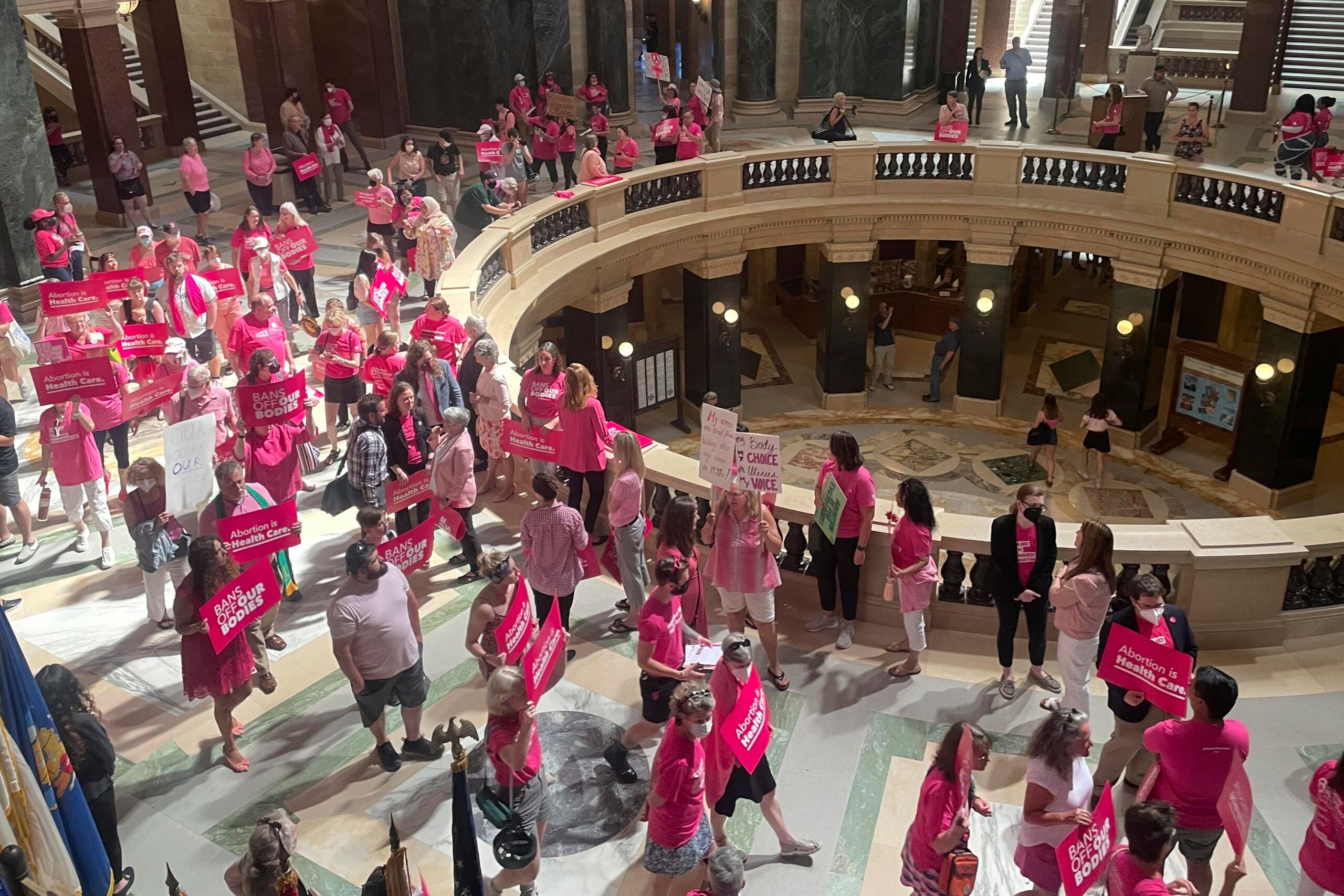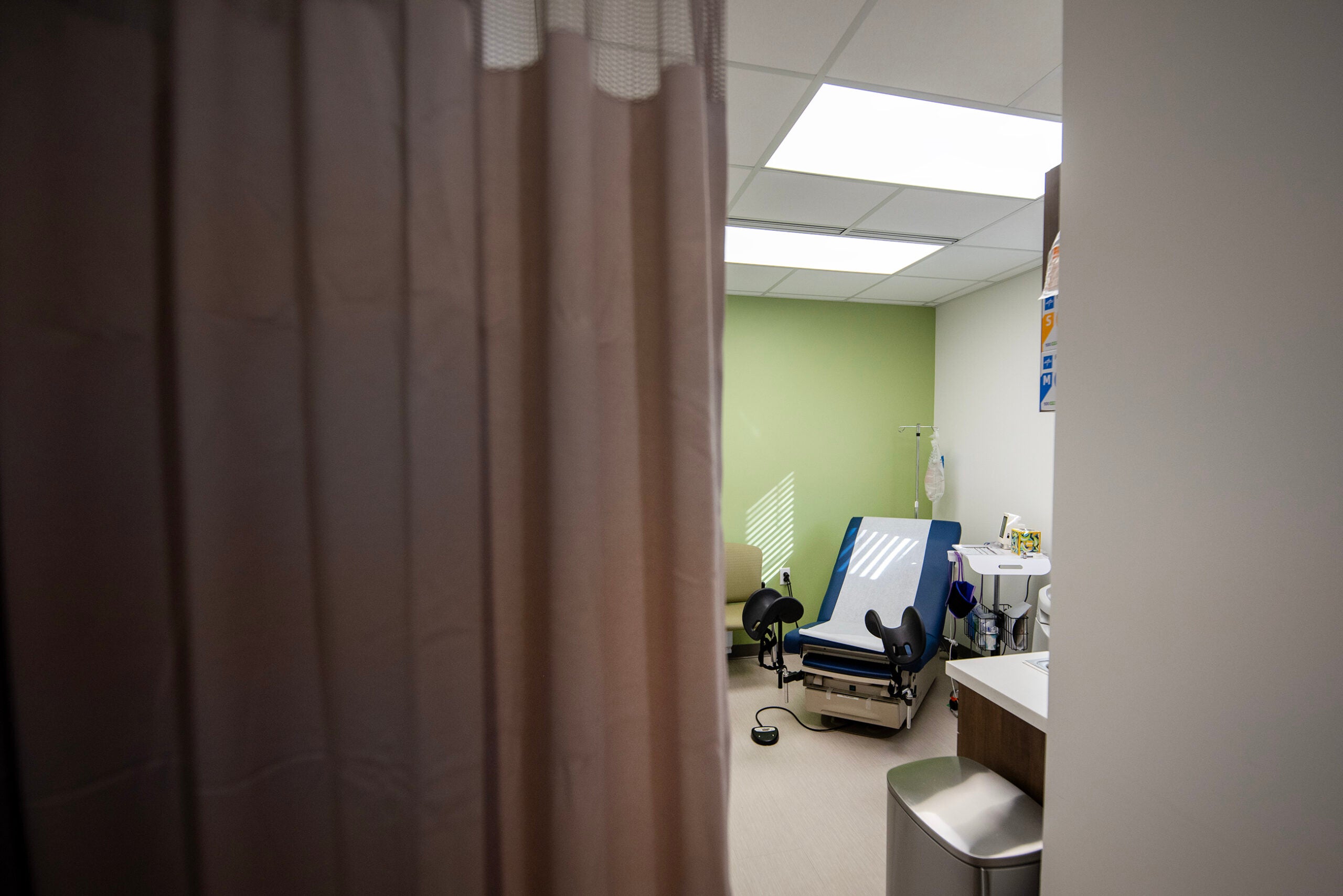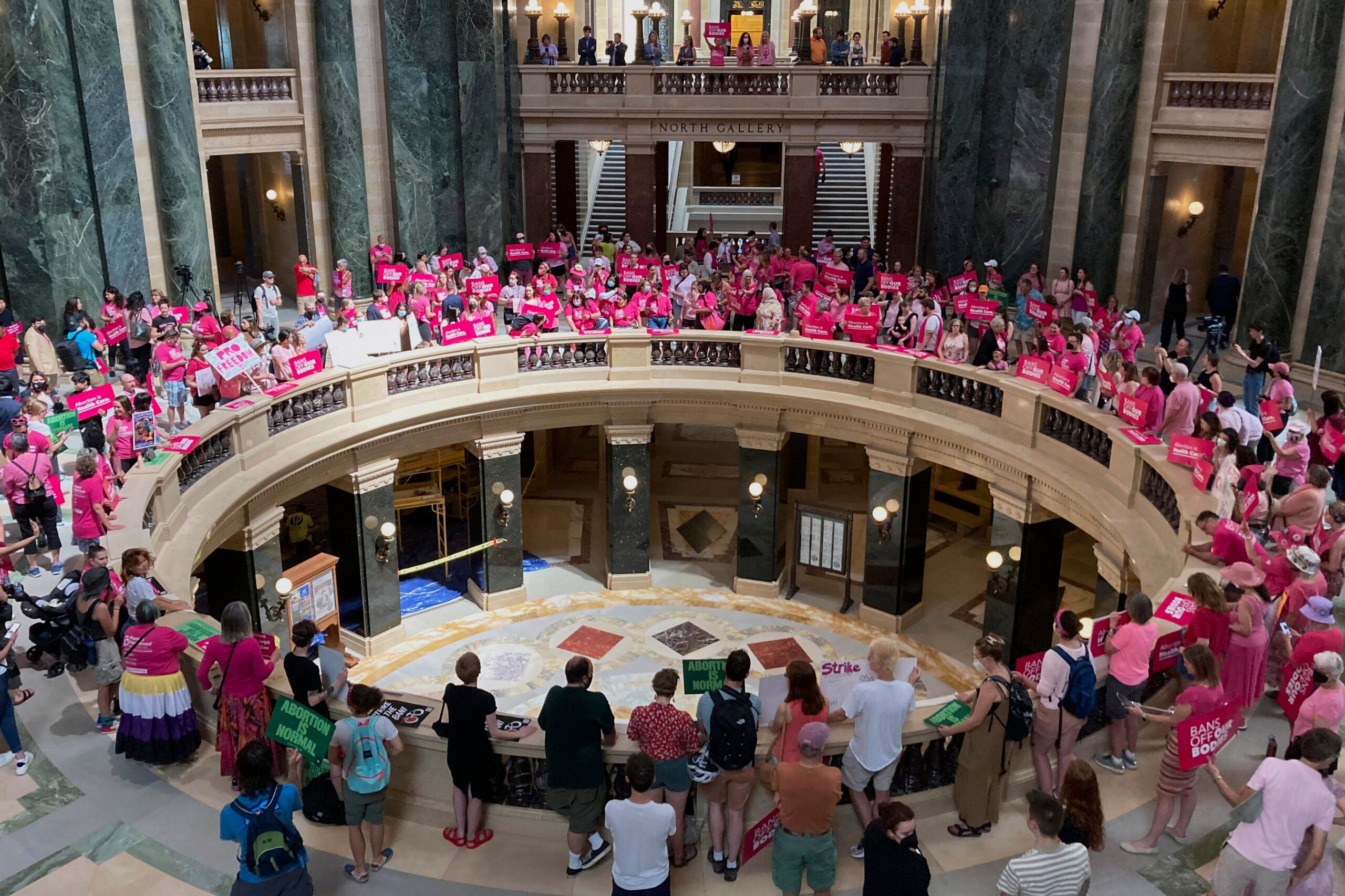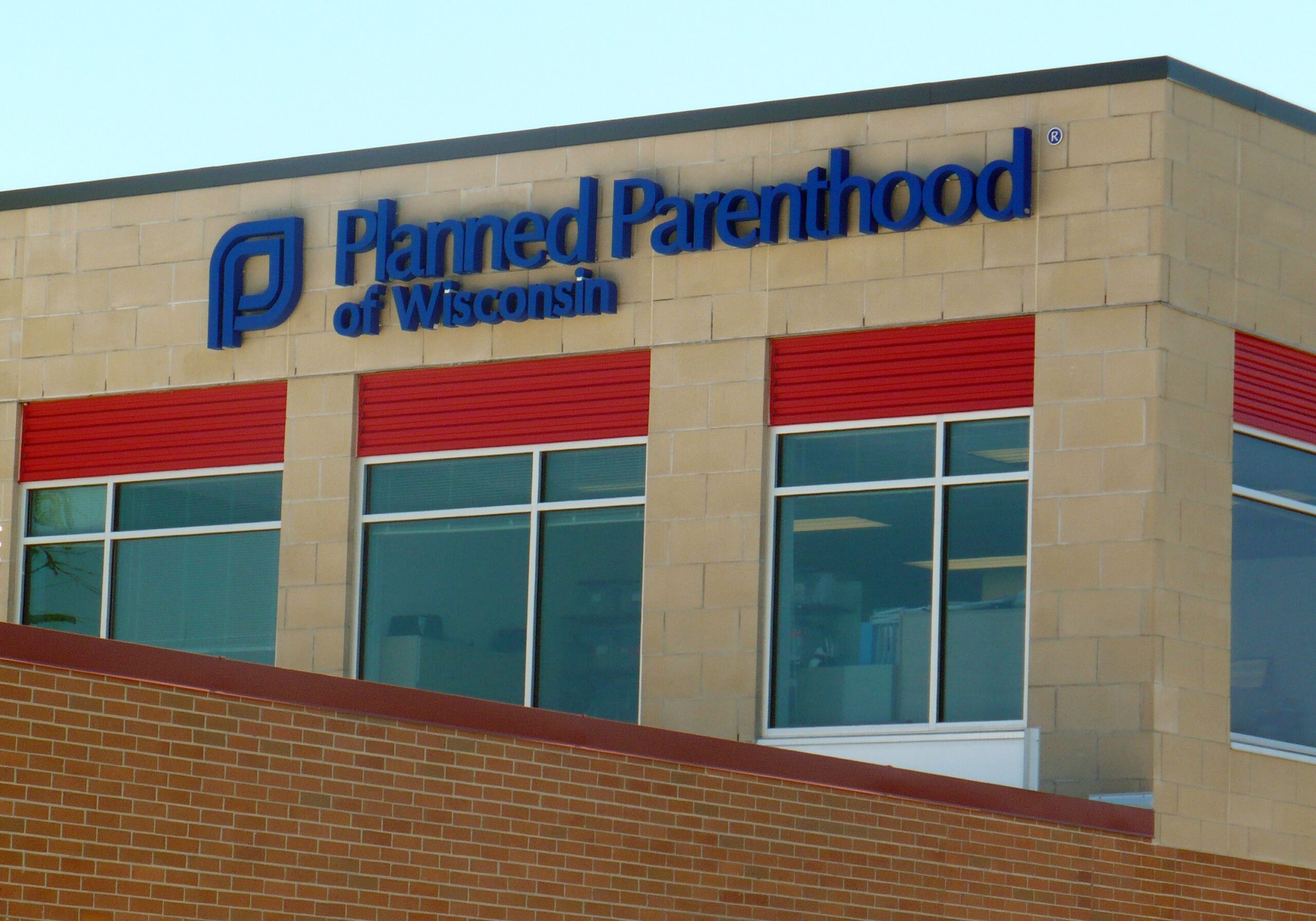Wisconsin’s 19th-century abortion ban is no longer in effect, the state Supreme Court ruled Wednesday.
The 4-3 high court ruling cements the effects of a lower court ruling, which previously invalidated a ban on most abortions in Wisconsin.
As a result of the lower court ruling and Wednesday’s Wisconsin Supreme Court decision, elective abortions remain legal in Wisconsin up to 20 weeks of pregnancy.
News with a little more humanity
WPR’s “Wisconsin Today” newsletter keeps you connected to the state you love without feeling overwhelmed. No paywall. No agenda. No corporate filter.
Wednesday’s decision comes nearly eight months after the high court heard oral arguments in the case late last fall.
The ruling results from a 2022 lawsuit, which was brought by Wisconsin’s Democratic Attorney General Josh Kaul in the days after the U.S. Supreme Court overturned a national, constitutional right to abortion.
The law that was in question first took effect before the Civil War. It said that “any person, other than the mother, who intentionally destroys the life of an unborn child” is guilty of a felony and includes an exception only for abortions done to save a pregnant woman’s life.
But in its new ruling, the court’s liberal majority concluded the 19th-century state law cannot be enforced. That’s because the law has been contradicted by more-recent Wisconsin laws that regulate abortion, justices determined. Those laws amounted to an implied repeal of the 19th century statute, justices said.
“We conclude that comprehensive legislation enacted over
the last 50 years regulating in detail the ‘who, what, where, when and
how’ of abortion so thoroughly covers the entire subject of abortion that it
was meant as a substitute for the 19th-century near-total ban on abortion,” a majority opinion written by Justice Rebecca Dallet said. As a result, the law “does not ban abortion in the state of Wisconsin.”
Justices Ann Walsh Bradley and Janet Protasiewicz signed on to the majority opinion, and Justice Jill Karofsky filed a concurring opinion. The court’s three conservative justices dissented.
In a news conference Wednesday morning, Kaul said the decision provided some much-needed clarity for Wisconsin residents and their medical providers.
“Today’s ruling marks a major victory for reproductive freedom, following the uncertainty and harm to women’s health that have resulted from the overturning of Roe v. Wade,” the attorney general said.
Providers halted elective abortions in Wisconsin for over a year
After the U.S. Supreme Court in June 2022 overturned Roe v. Wade, the federal case used as the basis for a right to abortion, providers across Wisconsin stopped providing elective abortions because of concerns about being prosecuted under the 19th-century law.
That period of legal limbo lasted for more than a year until a Dane County County judge handed down a decision favorable to abortion-rights supporters.
Before that decision, Kaul said many Wisconsinites were left in an unacceptable situation.
“Unfortunately, for 15 months, women in Wisconsin had to experience something that for essentially two generations, people hadn’t had to go through, which was being denied the autonomy and the freedom to make their own reproductive health care decisions,” Kaul told reporters Wednesday. “We can’t let Wisconsin return to that kind of environment again.”
The Dane County judge concluded in 2023 that the 19th-century law does not ban abortions if they’re done with a pregnant person’s consent.
Instead, Judge Diane Schlipper opined that the law bans feticide, which is assaulting a pregnant woman and destroying her pregnancy.
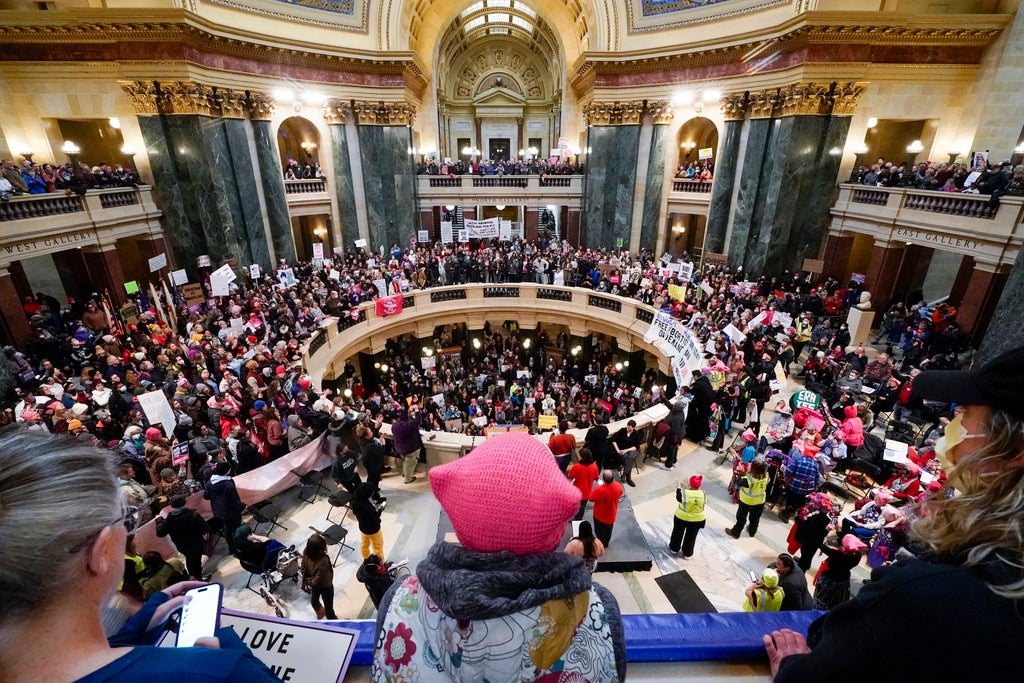
In the wake of that Dane County decision, Planned Parenthood of Wisconsin once again began offering abortions in the state. The organization resumed abortions at its clinics in Madison and Milwaukee in September 2023 before restarting abortion services in Sheboygan in December of that year.
Since then, two other clinics known as Affiliated Medical Services and Care for All have started providing abortions in Milwaukee.
Although abortion is currently legal in Wisconsin, advocates point out that other statewide restrictions on abortion remain in effect. That includes a mandatory ultrasound law and a law requiring someone to wait 24 hours after an appointment with a physician before getting an abortion.
In their ruling, the high court’s liberal majority did not echo Schlipper’s interpretation of the law as one that bans feticide but not “consensual” abortions.
Nonetheless, justices concluded that the more-than-century-old legislation had been superseded by Wisconsin abortion laws passed later on.
Democrats, including Gov. Tony Evers, praised the ruling on Wednesday, while the state’s Republican party criticized the justices behind the majority opinion.
“The Wisconsin Supreme Court’s role is to follow the Constitution, not to make law,” Wisconsin GOP Chair Brian Schimming said in a statement. “This issue should be resolved in the legislature and by voters, not by far-left justices parading as legislators.”
It’s not yet clear exactly what additional restrictions on abortion would pass Wisconsin’s Republican-controlled Legislature. More stringent limits on abortion would likely face a veto from Evers, and Republicans are short of the super-majority needed for a veto override.
While speaking to reporters on Wednesday, Senate Majority Leader Devin LeMahieu, R-Oostburg, did not answer a question about whether he would introduce additional abortion-related legislation in response to the ruling.
“I haven’t had a chance to review it [the ruling] this morning,” LeMahieu said early Wednesday, during a news conference about impending passage of the state budget. “But it appears that, once again, the state Supreme Court liberals sort of went rogue and overturned legislative power.”
Abortion was centerpiece of race that flipped Wisconsin’s Supreme Court
This week’s decision was hotly anticipated, after abortion rights became a centerpiece of a costly Wisconsin Supreme Court race in 2023 and again in 2025.
Some conservatives have accused the court’s liberal majority of delaying a decision in the case in order to keep the 19th-century state law alive as an election issue.
After agreeing to take up the case, the high court heard arguments on Nov. 11 from the attorney general’s office and from attorneys for Joel Urmanski, a Republican district attorney in Sheboygan County.
Urmanski has said previously that, unless a court rules otherwise, he would enforce the 19th-century law banning most abortions.
Justices also weighed testimony from a group of Wisconsin physicians who intervened in the case, arguing that their due-process rights would be harmed if an abortion ban was enforced.
Although Wisconsin Supreme Court seats are officially nonpartisan, justices seen as liberal have had a 4-3 majority since August 2023.
That’s when Protasiewicz, who had the backing of Democrats, beat Dan Kelly by a decisive margin of 11 percentage points after emphasizing her support for abortion rights while campaigning.
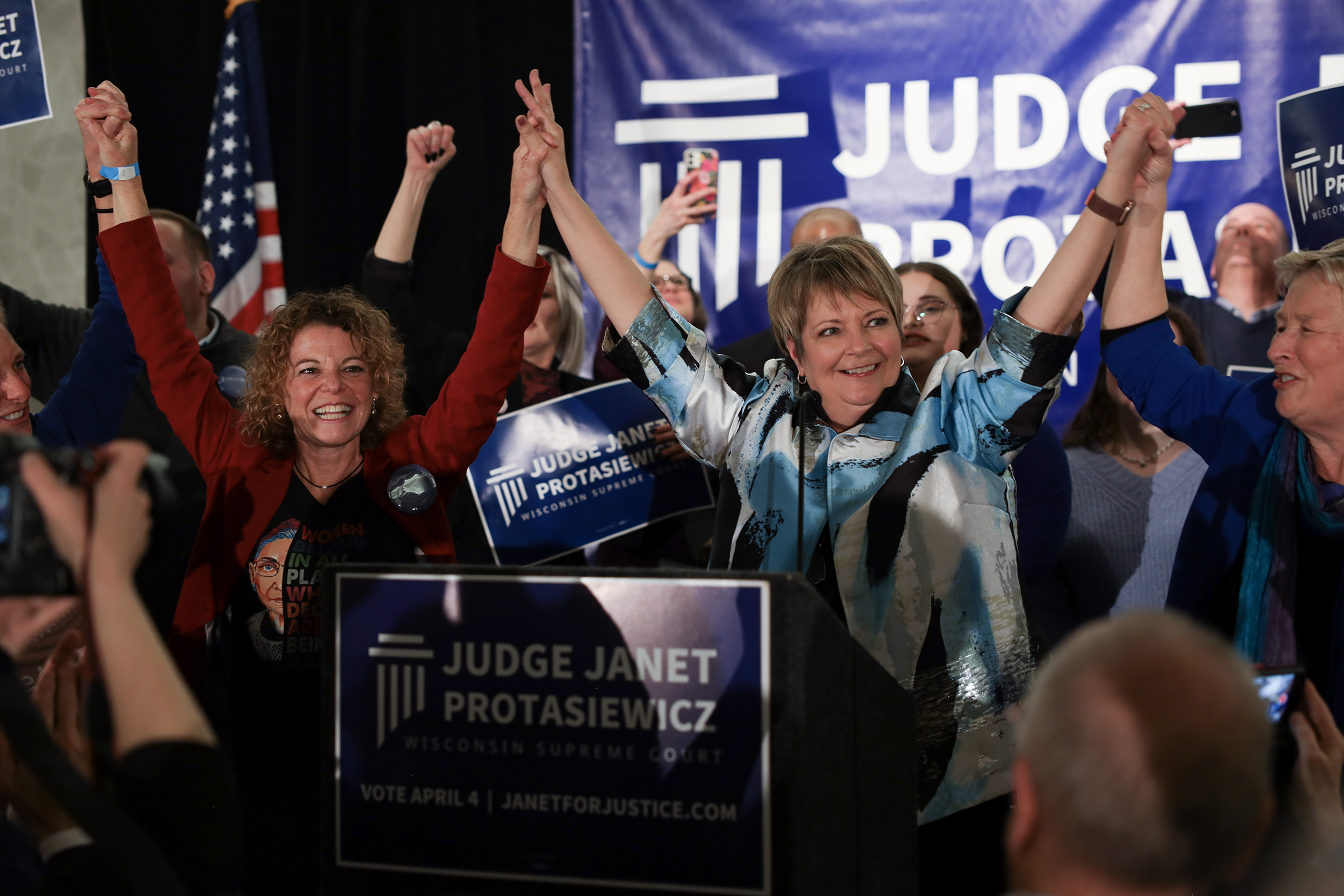
Before Protasiewicz’s win, justices seen as conservative had held a majority on the Wisconsin Supreme Court for a decade and a half.
The current liberal majority will continue into the court’s next term after Dane Count Circuit Court Judge Susan Crawford won an election in April against former Republican Wisconsin Attorney General Brad Schimel.
Crawford takes office Aug. 1 to replace retiring liberal Justice Ann Walsh Bradley.
In February 2024, Planned Parenthood of Wisconsin filed a separate abortion-related petition with the state’s Supreme Court. That lawsuit likewise argued that an abortion ban should not be enforced in Wisconsin, but it attempted to make that argument on broader grounds than did the attorney general’s lawsuit.
Planned Parenthood’s lawsuit contended that an abortion ban violates rights in Wisconsin’s Constitution, including the right to “bodily autonomy.” Last year, Wisconsin justices agreed to hear Planned Parenthood’s petition. On Wednesday, however, justices dismissed Planned Parenthood’s lawsuit, writing that the decision in Kaul’s case means the issues in Planned Parenthood’s challenge are no longer relevant.
Michelle Velasquez, chief strategy officer at Planned Parenthood of Wisconsin, celebrated Wednesday’s ruing in Kaul’s case, calling it a “victory for patients.” But Velasquez said she was “disappointed” the Wisconsin Supreme Court did not take up Planned Parenthood’s constitutional challenge.
She suggested future legal challenges could be brought forth against other abortion restrictions that remain in effect across the state.
“There’s still an open question as to whether or not the Wisconsin Constitution guarantees the right to bodily autonomy and therefore the right to abortion care,” Velasquez said during a joint news conference led by Kaul on Wednesday morning. “And we are committed to advancing all avenues to protect abortion access for the long term in this state, and that will include examining all of the current laws on the books.”
In a statement, Kelsey Pritchard of Susan B. Anthony Pro-Life America said anti-abortion activists “mourn the lives that will be lost under this activist ruling,” and pointed to Crawford’s Supreme Court victory earlier this year.
“Republican voters should heed this race as a warning ahead of the 2026 midterms,” Pritchard said of the Wisconsin election. “We must be engaged as we enter the midterms and show up to the polls next year so that Democrats cannot fulfill the abortion lobby’s agenda for late-term abortion funded by the taxpayer in more of our states and nationally.”
Wisconsin Public Radio, © Copyright 2026, Board of Regents of the University of Wisconsin System and Wisconsin Educational Communications Board.

